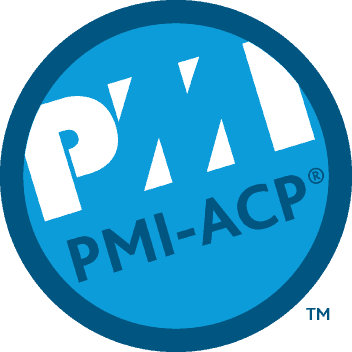
PMI-ACP: How Do I Get Certified
The agile approach has great demand in today’s project management sector. Your skills of collaboration, rapid response and the ability to embrace complexity are admired in the industry. Having agile traits makes you a more well-rounded and prepared project practitioner. So, why not showcase your talents with a best-suited certification.
PMI-ACP is a great certification for helping you attain recognition as an agile project practitioner. If you have been looking for answers regarding this certification, you are in the right place. This article will help you to know everything necessary to obtain your PMI-ACP certification.
Before going deeper, you should understand the basics of this certification.
What is the PMI-ACP certification?
PMI-ACP is the PMI Agile Certified Practitioner. This certification serves as a formal recognition of your understanding and skills of agile principles and agile techniques. It allows employers, peers, and stakeholders to know the credibility of your agile capabilities as a project practitioner. It denotes both your knowledge and experience, as both are needed to obtain this certification.
Organizations are moving rapidly towards agile practices to align with the needs of dynamic markets. This is increasing the value of the PMI-ACP certification.
There is a diverse range of agile methods that the PMI-ACP certification covers such as: Kanban, Scrum, Extreme Programming (XP), Test-Driven Development (TDD) and Lean. Hence, learning the material for this certification will increase your versatility as a project practitioner.
- Who should apply?
When working in an agile team, you can benefit from this certification. Also, if your company is planning to adopt an agile approach, this certification can improve your value in the company.
If you compare PMI-ACP with other certifications associated with agile, it gives valuable benefits. Obtaining a PMI-ACP certification is not just about training and passing an exam. It actually serves as a proof of your real-world skills and experience in agile.
- How do you obtain and maintain your PMI-ACP certification?
To obtain your PMI-ACP certification, you must complete an application via the PMI.org website. This details your experience and education that are needed to obtain this cert. Your application will be reviewed. Once your application is approved, you can schedule to take your PMI-ACP exam. This exam contains 120 questions with multiple choices as answers. You have 3 hours to answer all the questions and then to submit it.
The maintenance of a PMI-ACP certificate requires you to earn PDUs or Professional Development Units. You need to earn at least 30 PDUs, in the domains of agile, every 3 years of duration.
- What are the prerequisites for obtaining your PMI-ACP certification?
These are the prerequisites for obtaining your PMI-ACP certification:
- You need 2000 hours of work experience in general projects handled by teams. You can utilize your PgMP or PMP to fulfill this requirement however; neither of those certifications is required to obtain your PMI-ACP certification.
- You need 1500 hours of work experience on agile projects handled by teams that utilize an agile approach. These hours should be in addition to your 2000 hours of work experience in general projects.
- You need to have 21 contact training hours in agile methods and practices.
Why is the PMI-ACP certification essential for a project management professional?
A project management professional has to upgrade his or her ability with industry demands. If you are a project management professional, you need to offer evidence of your skills and experience in agile techniques and principles. And that is exactly what a PMI-ACP certification does.
What are the challenges and opportunities of obtaining a PMI-ACP certification?
These are the challenges you might have to tackle to obtain this certification:
- Obtaining the required hours of general project and agile project experience requires genuine effort.
- The exam presents situational questions, which tests your logical approach to applying agile principles and practices.
- A single exam covers a wide range of agile approaches such as Lean, Scrum, Extreme Programming, Kanban and others. So, you need to have a basic knowledge of these different Agile methods.
If you can meet these challenges, this certification brings many opportunities:
- Increased agile adoption
- Competitive advantage
- Better career opportunities
- Higher pay scale
- Increased productivity
How will a PMI-ACP certification help you as a professional?
With a PMI-ACP certification, you increase your value as a team member, facilitator and/or other stakeholder for agile projects. You can serve as a technical analyst for your organization, become a Scrum Master, project manager and even support as an agile coach, based on your experience and areas of knowledge.
Your credibility assists in better planning and execution of agile principles and practices. This increases productivity and relevance of the results obtained on an ongoing basis.
What’s the next step?!
Click here to learn about and register for our PMI-ACP certification preparation course… You can choose to take our course to prepare for PMI-ACP and add more value to your professional development.
This article was authored by PMO Advisory Agile Instructor Susan Parente, PMP, PMI-ACP, CSM, CSPO, PSM I, CISSP, CRISC, PMI-RMP, RESILIA, ITIL, MS Eng. Mgmt. Susan Parente is a Principal Consultant at S3 Technologies, LLC an Instructor at University of Virginia, and an Adjunct Professor at Post University in CT and Montclair State University in NJ. She is an author, mentor and teacher focused on project and risk management. Her experience is augmented by her Masters in Engineering Management with a focus in Marketing of Technology from George Washington University, DC, along with a number of professional certifications. Ms. Parente has 18+ years’ experience leading software and business development projects in the private and public sectors, including over a decade of experience implementing IT projects for the DoD and Department of Commerce.

